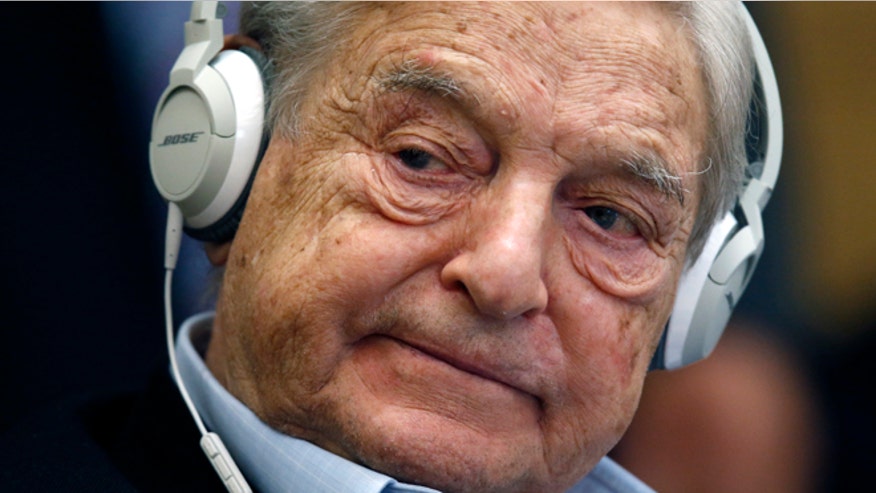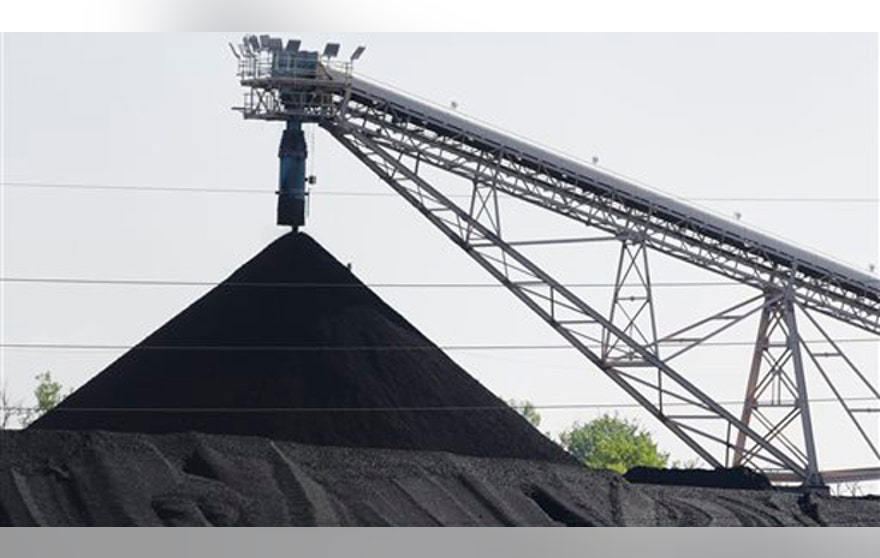This is a really interesting story and how money flows in and out of the sustainability fight, sometimes, as here, from the same source.
Interesting perspective and thought: Does fossil fuel, in this case, coal, become such a bargain that it attracts investment and more usage despite the science on the heavy price it tolls on our air quality? Does the scale balance between protecting natural resources and economic gain tip when the price of traditional fuels plummet?
We'd answer, "no"; the short-term gains pall in comparison to the bonanza of migrating to clean energy and building the green economy. Stepping back to garner some financial gain takes us off our gain and is short sighted when you contemplate our amazing advances towards a much more sustainable future.
Of course, we see the same thing on a small scale as SUV sales skyrocket in response to equally plummeting gas prices.
Billionaire George Soros warms up to coal as stock prices hit bottom
By Malia Zimmerman
April 9, 2015: Georges Soros, Chairman of Soros Fund Management, attends the annual conference of the Institute for New Economic Thinking (INET) at the Organisation for Economic Cooperation and Development headquarters in Paris. (REUTERS/Charles Platia)
The left-wing hedge fund legend has raised eyebrows with major purchases of stock in two large coal companies, firms his critics say he helped bring to their knees. While buying low is the hallmark of any shrewd investor, buying coal goes against the political and environmental ideology Soros has long espoused.
“I find it very interesting that George Soros would buy shares in those coal companies,” said Daniel Simmons, vice president for Policy at the Washington DC-based free market energy group, Institute for Energy Research. “I am confused given the non profits he funds and how hard they have worked to demonize coal.”
Soros, whose Climate Policy Initiative think tank recently urged the world to stop using fossil fuels in general and coal in particular, snapped up 1 million shares of Peabody Energy and half a million shares of Arch Coal, giving him significant stakes in what’s left of the U.S. coal industry.
The trades would have cost Soros a lot more six years ago, when Peabody, which trades under the symbol BTU, was at about $90 a share. Under the Obama administration, which has punished the coal industry with costly mandates and regulation, Peabody shares have fallen to around $1.

The 85-year-old hedge fund manager has a net worth of $24.2 billion, according to Forbes.com, which makes him the 19th wealthiest person in U.S. and second among hedge fund managers.
The most recent filing shows Soros Fund Management holds stakes in 263 companies with a total value of nearly $11 billion.
The filing shows the purchases of 553,200 shares of Arch Coal for $188,000 and an investment of $2,254,000 into Peabody Energy for 1,029,400 shares, which means he’s lost money on both so far.
Peabody, the biggest coal producer in the U.S. by output, said in a recent statement that it “has been trying to turn itself around as it faces challenges from low natural-gas prices, a glut of global coal supplies, weakened demand from China and a growing public call to cut carbon emissions.”
Soros Fund Management previously held $234 million in shares in the coal producing company, CONSOL Energy, but sold the shares over the last year, according to SNL.com.
Free market energy experts note Soros has invested more than a billion dollars into think tanks, lobbyists, political action committees and politicians who have pushed for regulations that have nearly destroyed the coal industry, in favor of so called “clean energy.”
Soros invested $1 billion in clean energy technology beginning in 2009, according to Bloomberg News. He also founded the Climate Policy Initiative, a San Francisco-based organization, in which he is investing $100 million over a decade, Bloomberg News reports. Among its partners is the UK Department of Energy & Climate Change, the German Federal Ministry for the Environment, Nature Conservation, Building and Nuclear Safety, and the U.S. Department of State. The Climate Policy Initiative released a report last year suggesting the world should transition away from coal.
Soros' Open Society Foundations, which has assets of $1.5 million, according to its most recent IRS 990 tax form, claims over the last three decades expenditures of $12 billion.
Soros was convicted in a French court in 2009 of insider trading, which cost him the equivalent of $2.5 million in fines. That was the amount French prosecutors claimed he made 14 years ago after investing, allegedly with insider knowledge, in the French bank Société Générale - a charge Soros denied.
FECINfo.com, the Political Moneyline database of Federal Election Commission records for donations that George Soros made during the 2012, 2014, and 2016 election cycles, shows 139 records for more than $8.8 million.
In 2015, he made two contributions of $1 million each to Priorities USA Action Super PAC and American Bridge 21st Century Super PAC. He initially supported Hillary Clinton for President when he donated $25,000 to the Ready For Hillary PAC in 2013.
Soros backed President Obama, who notably campaigned in 2008 shutting down the coal industry, a promise industry experts say he’s kept.
“The drop in coal market stock is directly related to the promise that Obama made to his environmental extremist supporters – ‘you can build coal fired power plants, but we will shut them down,’” said John Sparr, a mining engineer and geologist who specializes in the coal industry.
Investments in coal under current conditions bear little risk given the low stock prices.
“With markets dwindling, coal companies shutting down and workers being laid off, it is no wonder that stocks are crashing,” Sparr said.
But should there be a change in the regulatory climate, coal stocks could become a bargain.
The important thing about coal, Simmons said, is a little over 10 years ago, coal produced 50 percent of energy in the U.S. and that is now at 40 percent and continuing to trend downward.
Michael South, a UK-based mining and energy consultant, told FoxNews.com that while coal prices have suffered around the world in part because of a drop in demand from China and other countries, and fracking, which produced natural gas at a cheaper price, there is still a huge need for coal, and eventually prices will go up.
“George Soros spent millions of dollars and multiple years helping to driving down price of coal,” said H. Sterling Burnett, research fellow and managing editor, at the Heartland Institute. “If he buys enough stock to have controlling interests in these coal businesses, closes them down and leaves the coal in the ground, we might accept that he is a true believer, that his investment was all about stopping climate change and saving the environment."
“But my suspicion is that he helped to drive stocks down, bought as many shares as he can, and, when stocks rebound, he can sell his shares and make a huge profit.”

No comments:
Post a Comment